Youth voices amplified
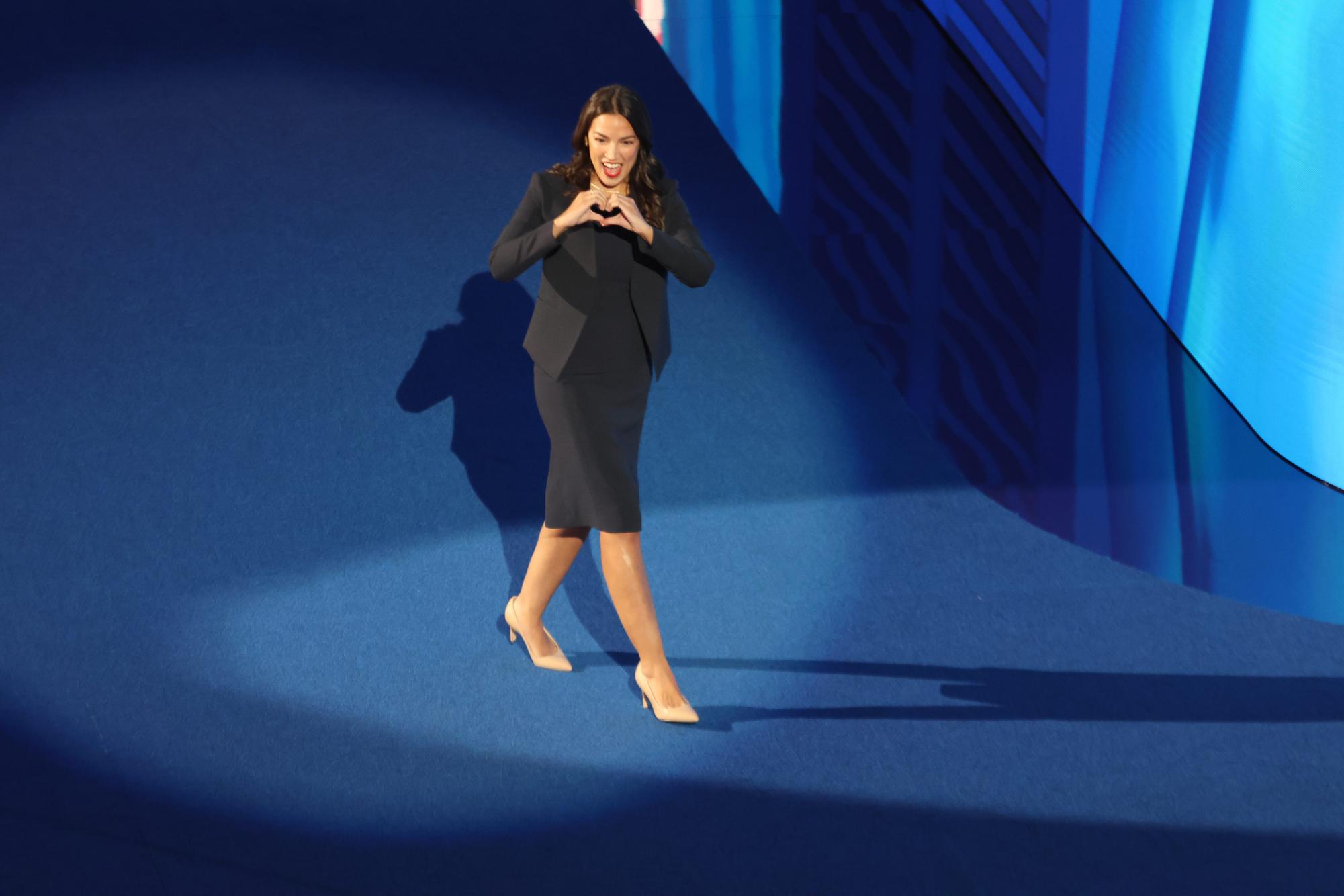
The Central Times sent two journalists daily to the Democratic National Convention in Chicago from Aug. 19-22. This was made possible by the Illinois Journalism Education Association. Read more of our coverage from the DNC at centraltimes.org.
The 2024 Democratic National Convention in Chicago put a spotlight on youth participation in politics from Aug. 19-22. Young delegates and activists took center stage at councils, protests and on the convention floor.
As President Joe Biden passed the political torch to Vice President Kamala Harris, the DNC credentialed young content creators, held two Youth Council meetings and focused on youth engagement throughout the convention.
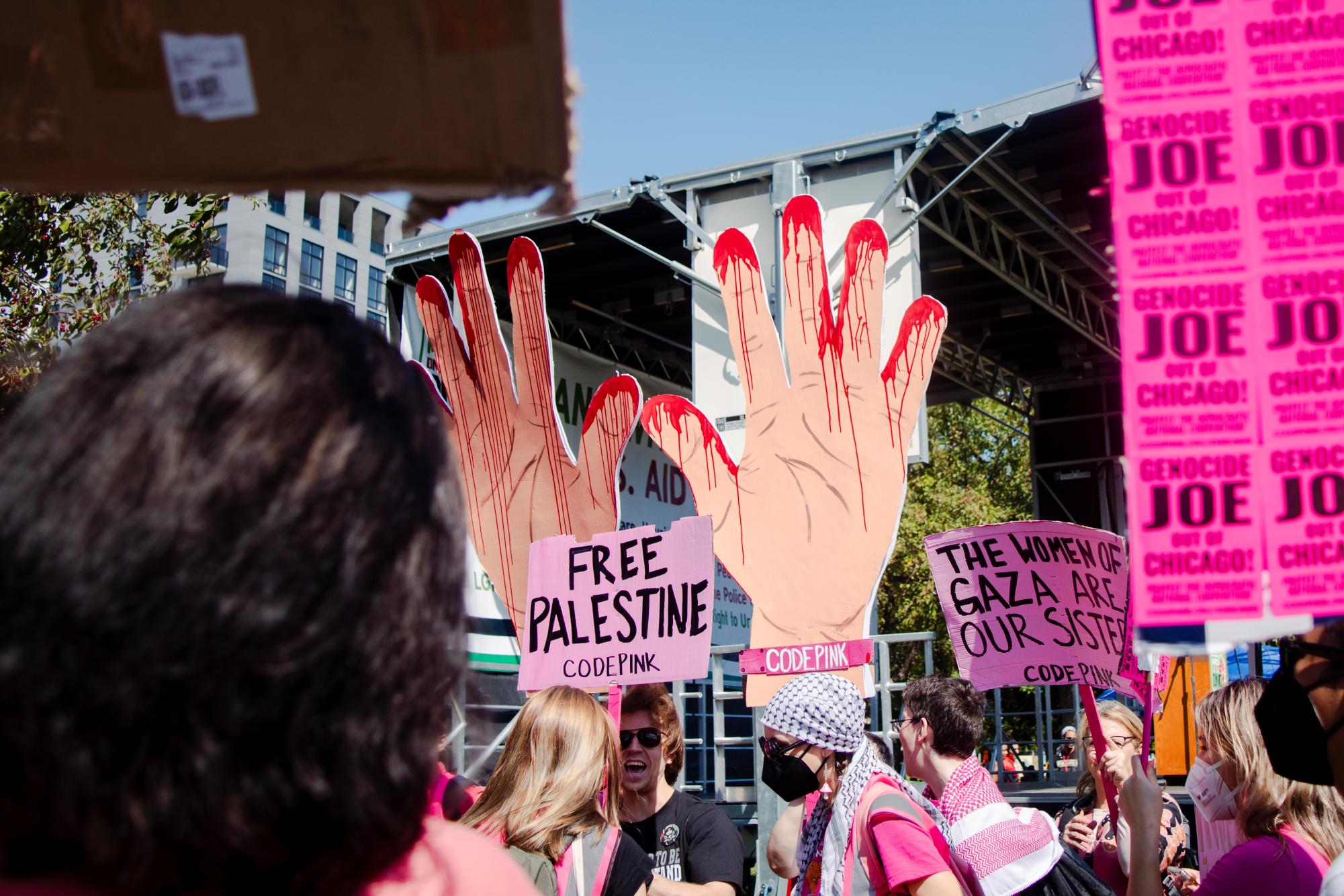
From the Student Nonviolent Coordinating Committee during the Civil Rights Movement to Students for a Democratic Society during the Vietnam War protests, generation after generation of American students have used protests as a means to get involved in politics.
After watching her mother organize for the Chicago Urban League, Rep. Ayanna Pressley (D-Mass.) saw firsthand the power of protests when standing up for tenants rights. In 2021, three years after being elected to Congress, she slept outside the capitol building alongside Rep. Cori Bush (D-Mo.) and Rep. Ilhan Omar (D-Minn.) to protest the end of the pandemic eviction moratorium.
“There is no eligibility age when it comes to activism,” Pressley said during the DNC’s Youth Council meeting on Aug. 22. “I believe the people closest to the pain should be the ones closest to the power, driving and informing the policymaking.”
Activism continued at Chicago’s Union Park, where thousands of protesters gathered as part of the Coalition to March on the DNC. More than a dozen of the coalition’s 270 member organizations are youth-led, including Jisoor, a Palestinian youth organizing group.
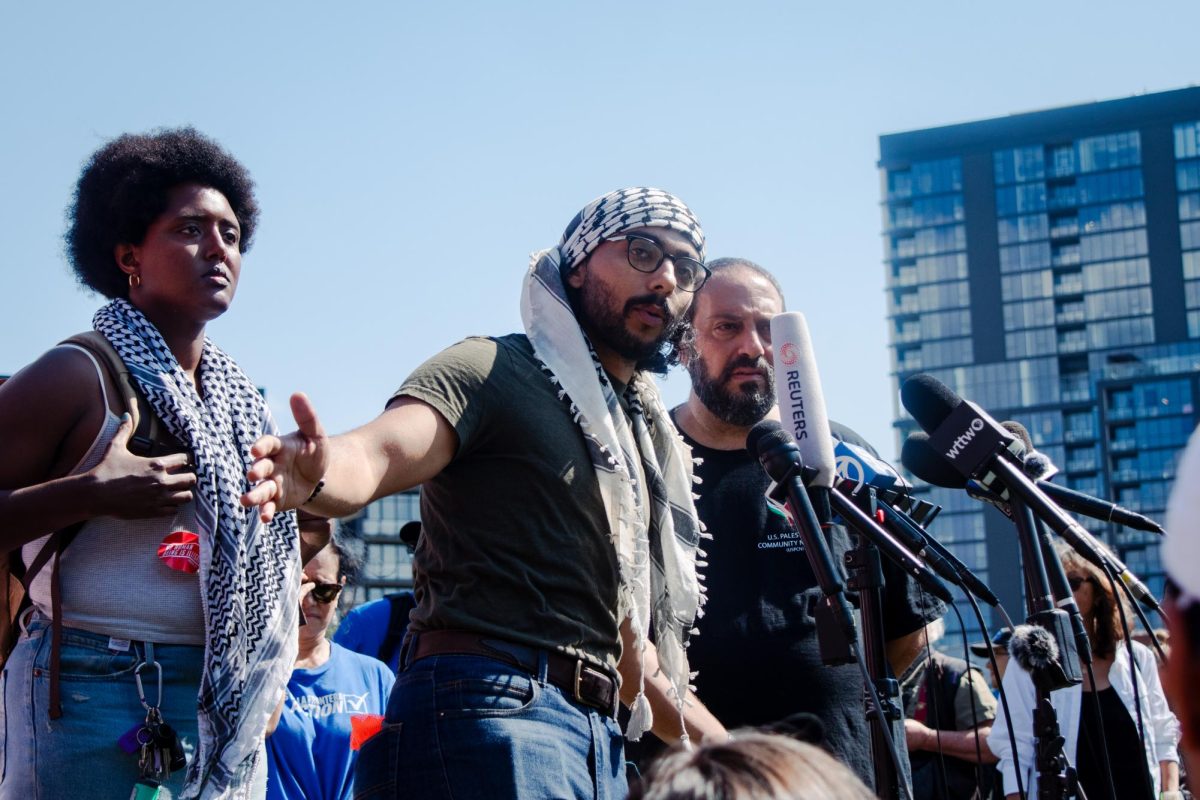
“Youth are progressively more aware about what’s happening around them and the core issues that plague their lives,” Jisoor co-founder Omar Younis said. “This marks a pivotal moment in youth involvement.”
It’s a continuation of national trends involving the Israel-Hamas war. According to Armed Conflict Location and Event Data, there have been 1,360 student-involved demonstrations on the conflict since Oct. 7, accounting for more than 40% of all pro-Palestine protests.
“Stay active, take it to the streets, protest [and] don’t think that voting is going to be the end-all-be-all,” said progressive activist Hasan Piker, who has 2.7 million followers on the streaming platform Twitch. “[Youth] are the future and hopefully we’ll be able to get the Democratic Party at some point to meet our demands.”
During the 2024 election cycle, Generation Z will make up 19.8% of the electorate, according to data from the U.S. Census Bureau. Former Georgia state Rep. Stacey Abrams believes that’s enough to swing the election for the Democrats.
“Young voters can change the future starting in this election,” Abrams said. “You all have the numbers, you have the power. We’re just waiting for you to use it.”
Many politicians at the DNC expressed the belief that this election is uniquely consequential for young voters. The United Center crowd echoed “we are not going back” each night of the convention, a clear message that Harris is “for our future.”
“I’ve always tried to urge my peers to get involved, and even if they disagree with me, voting is a must,” said 17-year-old Isaac Winkler, a delegate from Minnesota’s 5th Congressional District. “Decisions that are made today will impact you more than anyone else making them, so it’s important to get your voice heard.”
Next to Gov. Tim Walz (D-Minn.) and Sen. Cory Booker (D-N.J.), 17-year-old Annika Krovi sat as the temporary Vice Chair of the DNC’s Youth Council on Tuesday, Aug. 20 and Thursday, Aug. 22.
“It’s an exciting time, not only for myself as an individual, but for us as a collective [and] as a group of young Democrats who are ready to get stuff done,” Krovi said during Thursday’s Youth Council meeting. “In a time of suffering, in a time of apathy, in a time of hatred and fear and despair, we young people are the hope, the change and the joy that our nation needs.”
Krovi is the former chair of High School Democrats of America and was one of two superdelegates the organization sent to the DNC alongside former vice chair Henry Pahlow.
“I didn’t take it lightly, certainly, when I got to put in the nomination for first who will be the first-ever woman president, the first-ever black woman to be elected president, the first-ever South Asian woman to be elected president,” Pahlow said. “But the added responsibility was the expectation I put on myself that I need to serve partially as a voice for my generation and make sure that those in the party are aware of the issues young people care about, and are ready to invest and make sure that young people get to the polls.”
According to Illinois state Rep. Janet Yang-Rohr, the youth councils were evidence of the focus that the convention placed on young voters throughout the week.
“The DNC really prioritized that young voters [and] young people are engaged in this and that they are part of this process,” Yang-Rohr said. “If you look at [the] floor, it is full of some really great young leaders. When you look at that delegate floor, that’s what you’ll see: a lot of young people getting involved and making sure their voices are heard.”
In the audience of the Youth Council, one of those “young leaders” listened to Krovi speak on Tuesday: 17-year-old delegate Beatrice Schierer from Minnesota’s 7th Congressional District. Behind Winkler, she was the second-youngest delegate at the DNC.
“I was looking at it as a great opportunity to get involved as a young person who’s interested in politics,” Schierer said. “I thought it was super important that there was somebody from my age [and] my generation was there participating in the process of nominating the next [Democratic] presidential candidate on the ballot.”
Schierer started her senior year of high school on Tuesday, Sept. 3. She’s excited to tell her friends about her experiences at the convention.
“A lot of people have reached out to me and talked about how cool it is that I got to experience this and how they want to get involved,” Schierer said. “I’m excited to hopefully help my peers also get involved because it’s super important that young people are part of the process.”
For Winkler, the convention was an opportunity to represent not just his district, but the next generation of Americans.
“Not everybody has a voice to vote; not everyone will turn 18 before the election,” Winkler said. “I took it upon myself to try and represent those people as well. They might not have a vote in this current election, but they have a stake in the future and that matters.”
During the 2022 midterm elections, 68% of young voters (ages 18-29) voted for Democratic candidates, according to the Pew Research Center. For Abrams and other top Democrats, mobilizing that demographic is a key priority in the 2024 election.
“I’m doing all I can to encourage investment in their communities,” Abrams said. “[I’m] reaching out to get more of them to vote by knocking on doors, making phone calls, but more importantly listening to what the needs are, what the excitement looks like, and asking them for advice about what else we should do.”
A March 2024 poll by Harvard’s Institute for Politics found that the top issues for young voters were inflation, healthcare, housing, gun violence and jobs. Throughout the DNC, top Democrats tailored their message to young voters.
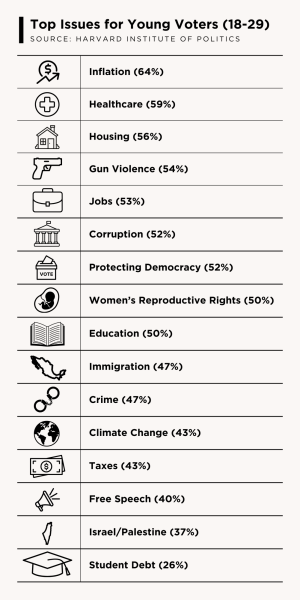
“The Harris-Walz ticket believes in you,” Kentucky Gov. Andy Beshear said. “They are focused on the future, while Donald Trump is focused on the past. They’re focused on creating more opportunity in the years to come: affordability of housing, better jobs, a better future with more options to chase your dreams regardless of what they are. We cannot elect a Donald Trump focused on revenge and retribution, things individual to him. We’ve got to elect the Vice President who’s focused not just on the next generation, but the one after that and the one after that and the one after that.”
Other Democrats focused their messaging on climate change. While its importance was ranked 12th in the Harvard poll, another study from the Pew Research Center reported that 67% of Gen Z Americans believe that climate should be a top priority in ensuring a sustainable future.
“If you care about climate, if you care about an economy that’s transitioning into a clean climate-smart economy, if you care about democracy, if you care about freedom—there’s only one choice in this race,” Secretary of Agriculture Tom Vilsack said.
For Alexi Giannoulias, Illinois Secretary of State, turnout was the focus. The Brookings Institute reported that only 31.2% of eligible young voters actually went to the polls during the 2022 midterm elections, a lower turnout rate than any other age demographic.
“Get out and vote,” Giannoulias said. “The most important issues of this election and every election are about the next generation: climate, education [and the] economy. Young people have to come out and vote.”
Pahlow believes that increasing young voter turnout means bridging the information gap between generations. Americans over 65 are more than twice as likely to receive their news from television (85% v. 41%), while those aged 18-29 are twice as likely to get their news from social media (69% v. 34%), according to the Pew Research Center.
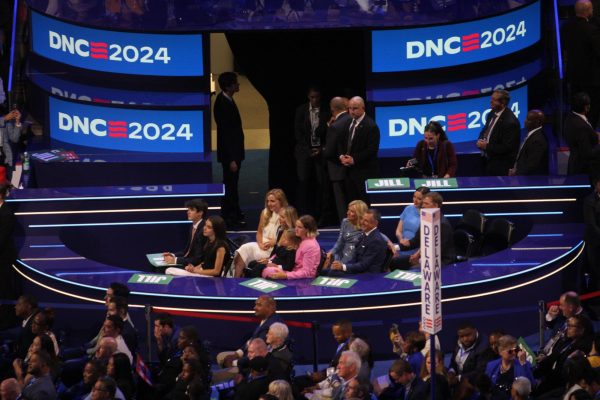
“I really want to advocate that Democrats as a party need to invest in making sure that young people know how to register to vote, that they know about our candidates and that they need to reach us on the platforms that we utilize [like] social media,” Pahlow said. “When I went to the DNC, my goal was to interact with people there and say, ‘I am a young voter, some of my friends here are young voters.’ Young voters care, there’s just an information gap.”
For the first time, the DNC featured more than 200 credentialed content creators, including YouTube influencers and Twitch streamers. They were provided with dedicated lounges and an exclusive “creator platform” from the floor of the United Center.
One of those creators was Chris Mowrey, who has 367,400 followers on TikTok. He hopes that sharing his experiences from within the DNC will help mobilize Gen Z voters in November.
“Authenticity is what works best,” Mowrey said. “I think that giving people the ability to see inside the convention—I’m literally live on TikTok right now—being able to see me walking around does a lot better than just normal work.”
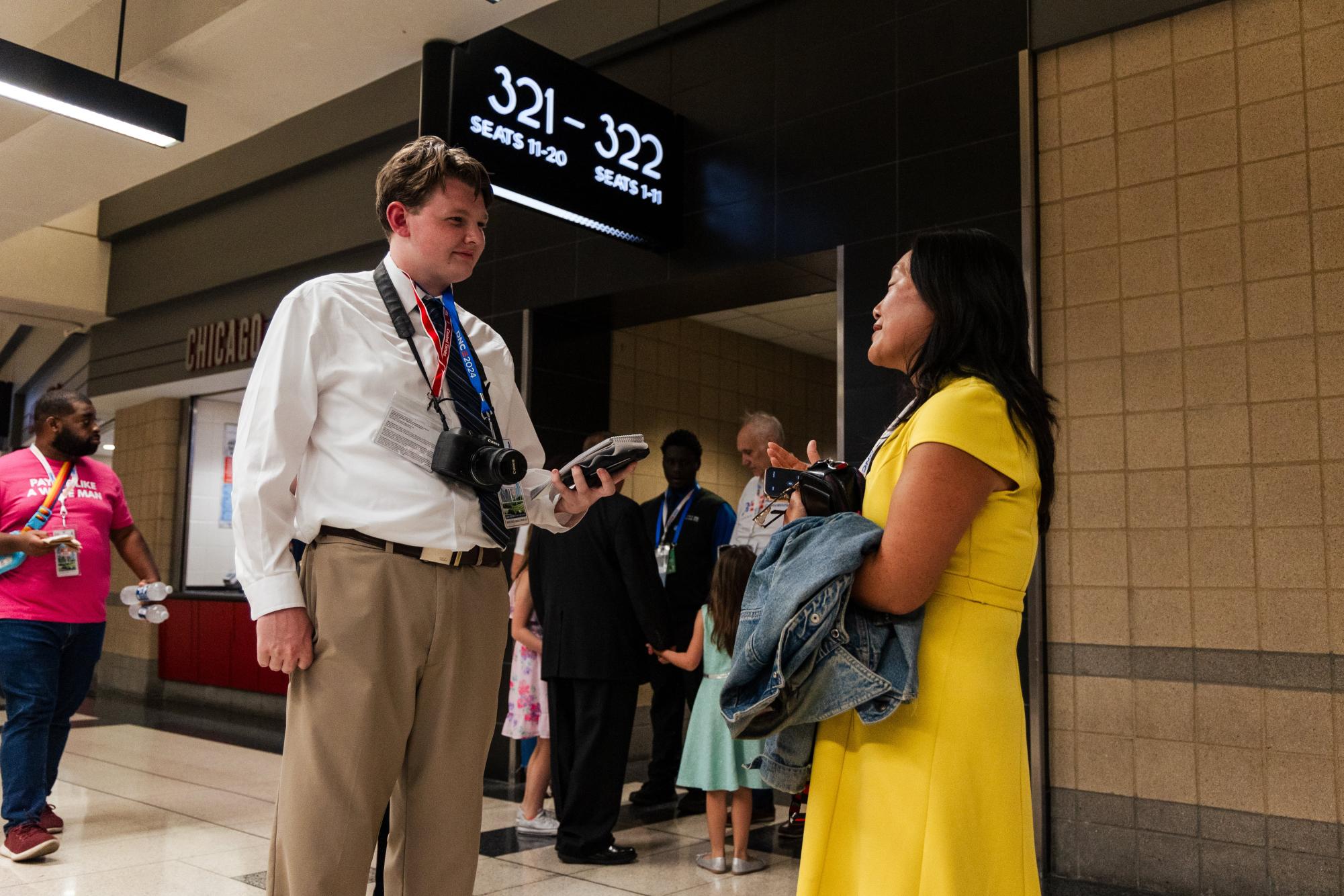
Krovi, Pahlow, Schierer and Winkler will all be 18 before election day, the youngest—Winkler—celebrating his birthday just three days before Nov. 5. However, more than 70 million other American youth will watch the election unfold from the sidelines, too young to vote.
According to Pahlow, it doesn’t have to be that way.
“A lack of a vote doesn’t mean a lack of a voice,” Pahlow said. “Sure, you can’t make your voice heard at the polling booth, but you can help others make their voices heard and you can also help people understand the issues. You don’t have to be 18 to make a phone call, you don’t have to be 18 to knock on the door, you can do that at any age. In that way, you’re still making your voice heard.”
Schierer got her start in politics supporting her father’s mayoral campaign in Fergus Falls, Minn. It’s a story echoed by many members of Congress, including Rep. Steven Horsford (D-Nev.), Chair of the Congressional Black Caucus.
“I started as a volunteer in my first election back in 1992 as a College Democrat,” Horsford said. “It was that experience that actually showed me that I could effectuate positive change in my community. From being a volunteer to being a member of Congress, that is the opportunity that has helped shape my experience, and it’s something that I would encourage every young person to get out and do.”
For others in Congress, political engagement is more than just national campaigns.
“Run for your student council, run for your city library Board of Trustees,” Sen. Tammy Duckworth (D-Ill.) said. “Be part of the process and be part of the future.”
At Naperville Central, the opportunities to get involved in the political process extend into the legislature. Students in Humanities Capstone classes have worked to pass laws on digital citizenship, climate change education and epipen training.
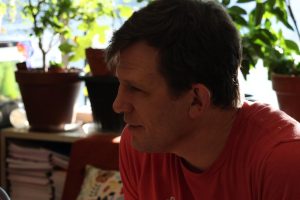
“I’ve done a lot of work with students at Naperville Central, Naperville North [and] Neuqua [Valley] that were younger,” Illinois state Rep. Janet Yang-Rohr said. “They had good ideas for legislation. They saw issues [and] problems that were going on in their schools [and] their classrooms facing them and their classmates, and we talked. Through that talking, through research we came up with legislation and we have passed multiple pieces of legislation at this point that are directly [impacting] your classrooms that you’re seeing every single day.”
Yang-Rohr sponsored HB4895 to the Illinois General Assembly, a bill written by Central senior Iris Shadis-Greengas that requires Illinois public schools to provide climate change education. After Illinois Gov. J.B. Pritzker signed it into law on Aug. 9, it’s set to go into effect during the 2026-27 school year.
“You do not need to be 18 to make change [and] affect change like that,” Yang-Rohr said. “I would encourage anyone [who] has ideas, [who] sees a problem or an issue that you’re facing, contact my office and let’s talk.”
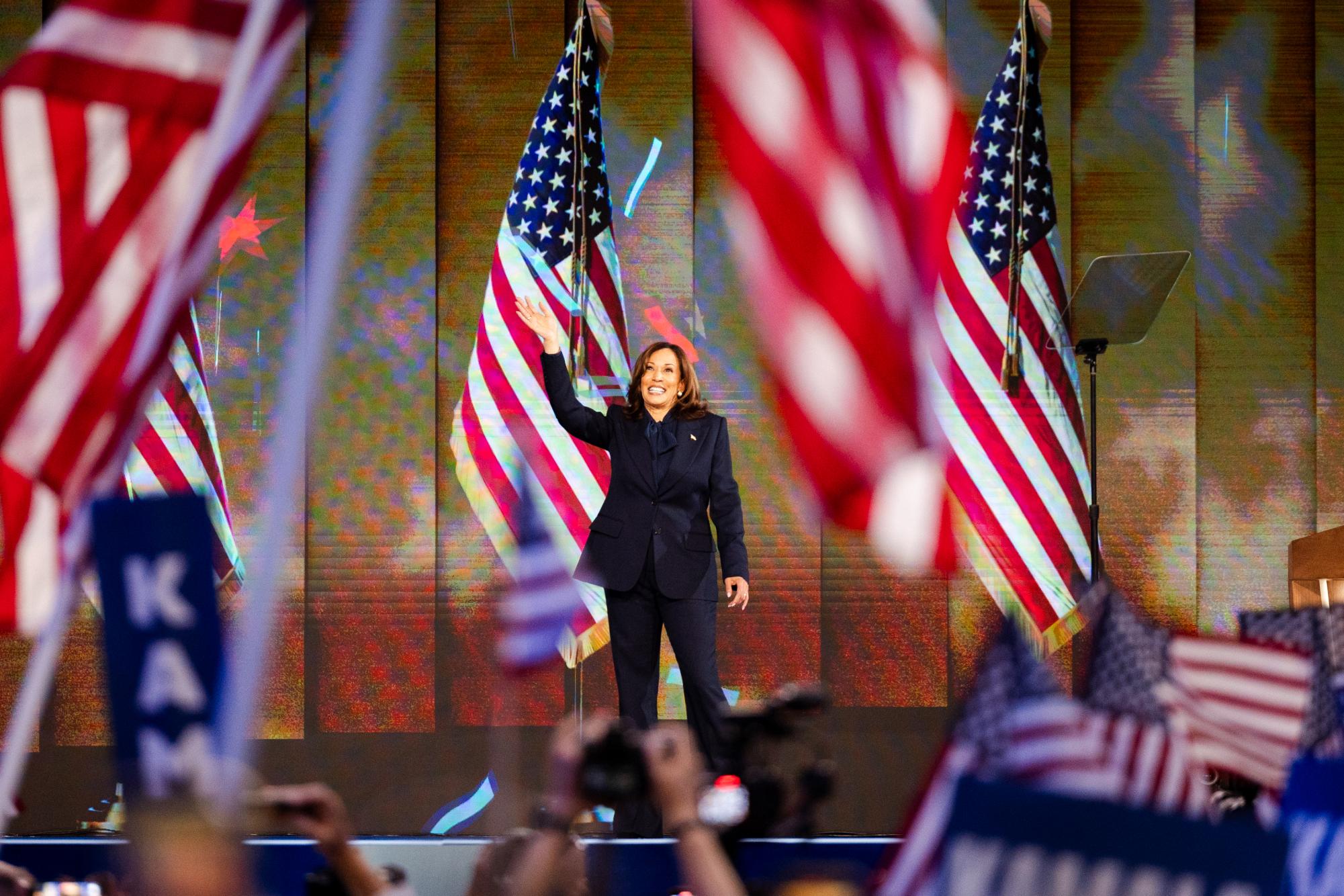
Appeals to young voters continued throughout the convention, highlighted on Monday when President Joe Biden passed the political torch to Harris. It was a moment that will help usher in the next generation of politicians, according to many at the convention.
“Young voters see that we’re turning a corner; we’re making a generational change and I think they see it [as] very welcome,” said Sen. Ron Wyden (D-Oreg.), Chair of the Senate Finance Committee. “I spend a lot of time on technology issues, and young people say ‘it’s cool that you’re interested in it.’ We’re also hoping to see some fresh faces as we’re doing that.”
The convention was themed “For the People, For Our Future.” For Horsford, the theme echoed the DNC’s emphasis on young voters throughout the week.
“Young voters matter,” Horsford said. “This election is consequential, but it’s consequential because the issues that are going to be decided between two different visions for America—one led by Kamala Harris to move our country forward, versus Donald Trump [who] wants to take us back—will be decided by young voters.”
Those “visions for America” go beyond policy, according to DaMareo Cooper, co-Executive Director of the Center for Popular Democracy.
“When [Harris] makes that acceptance speech, there’s going to be millions of young women—young girls of color, young people of color, Black women, Black girls—who are going to [think] ‘that’s possible for me,’” Cooper said. “The same way that millions of Black men and Black people felt there was a new possibility for them when Barack Obama was elected.”
Tuesday’s theme was “A Bold Vision for America’s Future,” and Thursday’s was “For Our Future.” According to New York Gov. Kathy Hochul, it represents a focus on young people showcased throughout the convention.
“[The future] is going to be driven by young people who are here at this convention,” Hochul said. “For so many, this is their very first time to witness this process in-person. They’re energized, they’re fired up, and they’re going to go back home and get all their friends to march to the polls and elect Kamala Harris and Tim Walz. That’s how we take back democracy [and] how we take back America.”
Jay Deegan contributed to this story.
Your donation will support the student journalists of the Central Times by helping to fund publication expenditures.





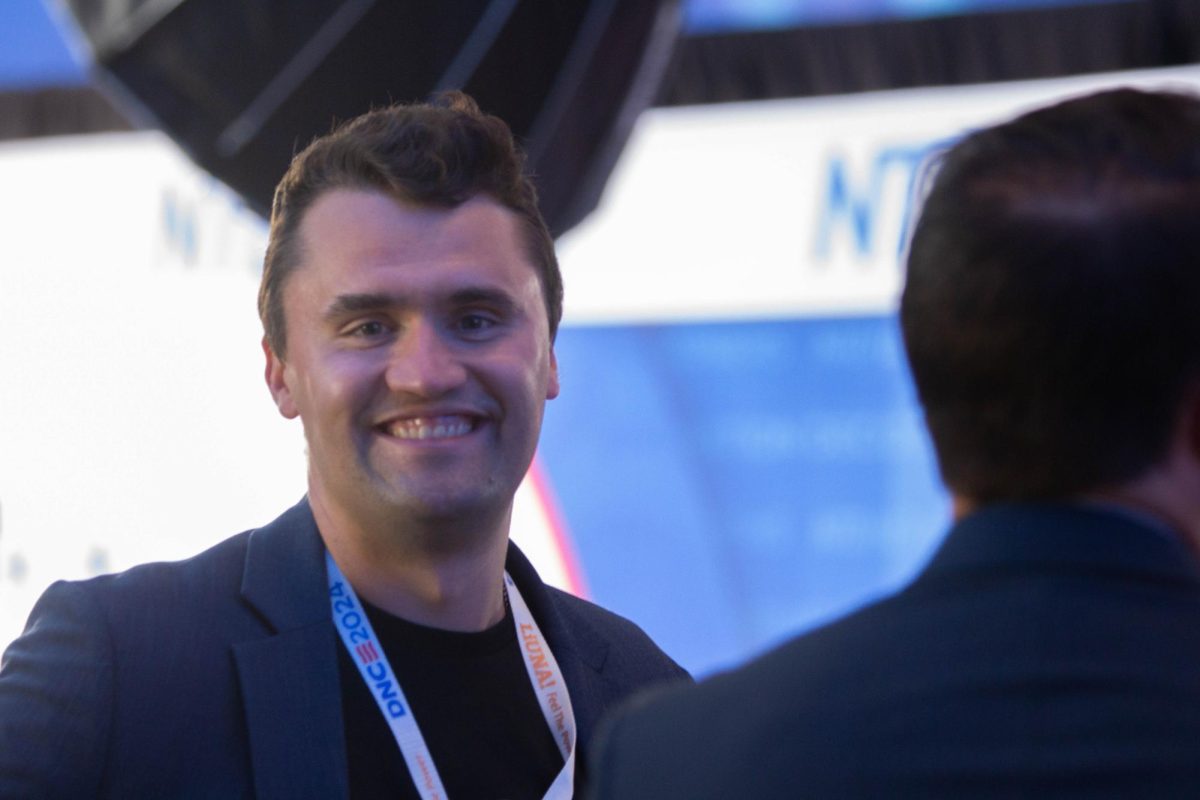
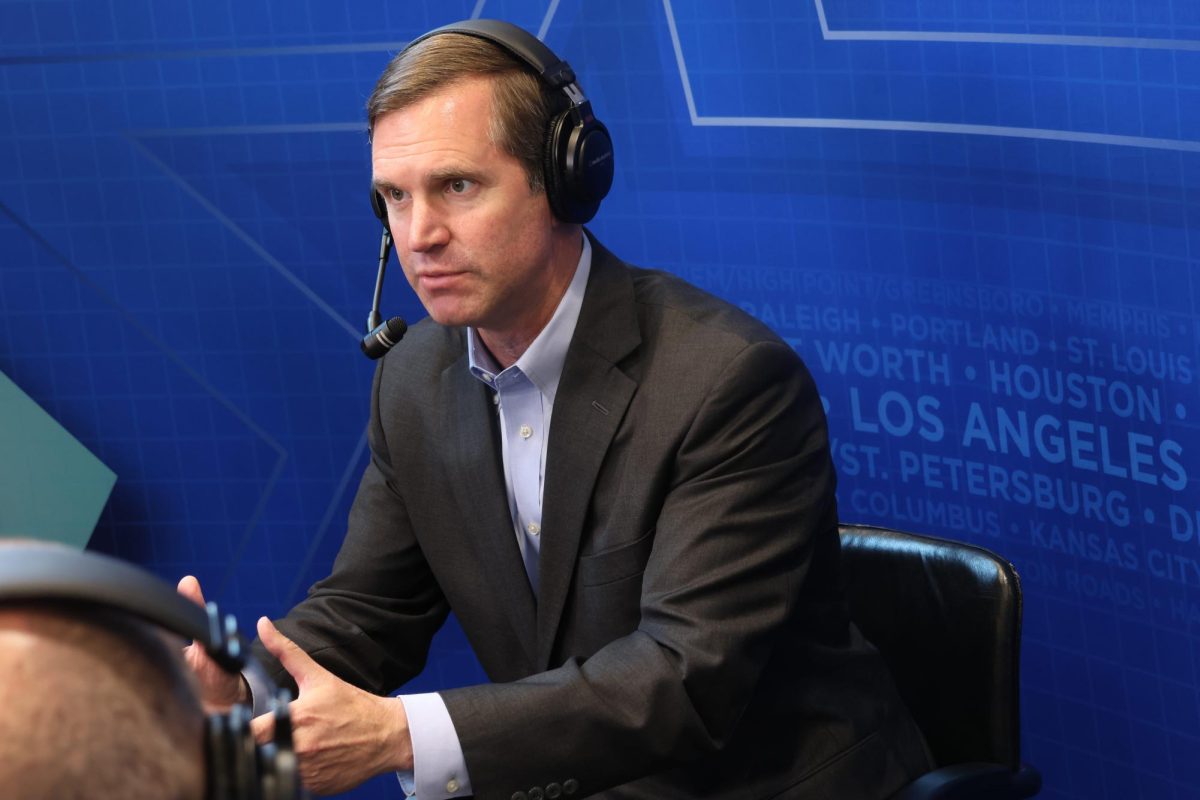
Just asking • Feb 20, 2025 at 5:52 pm
Just wondering, why was the cover photo changed?